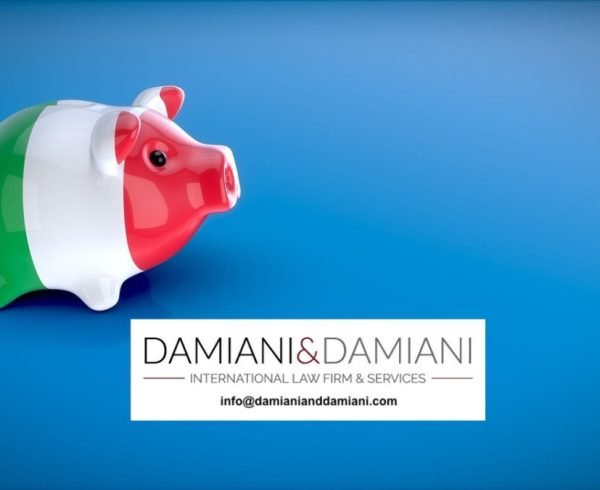In economics, competition is a scenario where different economic firms are in contention to obtain goods that are limited by varying the elements of the marketing mix: price, product, promotion and place. In matters concerning unfair business practice, clientele diversion and illegal advertising there seems to be a contrast between the Court of Justice of the European Union (CJEU) and the Italian Court of Cassation. The reason for this contrast is given by the different meaning that the Italian law assignes to the roles of entrepreneur and professional.
The decision of the Court of Milan and the case of clients diversion
In regards to competition and advertising, in 2017 the specialised commercial division of the Court of Milan gave a judgment extending the boundaries of the Court of Cassation by equalizing a professional – in that case, an attorney – to an entrepreneur. The commercial division of the Court of Milan, with the decision of 6 June 2017, stated that a professional can be subject to deceptive trade practices by another professional who stole clients. By doing so, the Court of Milan followed the orientation of the Community case law whereby the law against unfair trade practices – ruled by article 2598 of the Italian civil code – is indeed applicable to professionals.
The CJEU has stated its orientation on illegal competition among professionals in 1999. In that year, it manifested the necessity for the Italian Court to go beyond the formal definition of enterprise, and decide whether or not to apply article 2598 of the civil code, concerning illegal competition. The Italian Court of Cassation, on the other hand, has always denied that the notion of illegal competition could refer to relations between professionals. Nevertheless, in 2010, it sanctioned a notary public who had illicitly opened a firm in a place where a notary was already present – although the case was explicitly excluded from the notion of unfair business practice.
Unfair business practices between professionals. Applicable rules
Unfair business practices encompass fraud, misrepresentation, and oppressive or unconscionable acts or practices by business, often against consumers, and are prohibited by law in many countries. In European case law, as followed by the orientation stated by the Court of Milan, the notion of enterprise comprehends any entity engaged in an economic activity, irrespective of its legal form and the way in which it is financed. An undertaking is any subject that carries out an organised and regular economic activity on a given market, irrespective of how the single national systems define the entity or the physical person the above mentioned economic activity refers to.
Definition of enterprise according to EU law
With its decision, the Court of Milan expressed the principles that regulate deceptive practices between professionals. According to the Court, “the technical knowledge asset of a firm of considerable size, able to follow a substantial number of various clients, including not only physical persons, but mainly foreign-based capital companies, represents an intangible asset, entitled to protection from the competition dynamics that may occur between subjects who offer the same type of service, for a potentially common clientele. Hence why is the appealed decision correct insofar it deemed the discipline of unfair competition applicable, although with certain characteristics”.
The orientation whereby the practice of the profession of lawyer (Bar) in corporate form does not represent enterprise activity
Why is the Court of Cassation so adamant that the principles ruling illegal competition cannot apply to professionals? According to the Supreme Court, despite the entrepreneurial nature of the professional’s activity and its being carried out through a business-organised structure with headquarters, employees, resources etc, the activity is not comparable to that of an enterprise in a competitive market. The reason is given by the purpose of the Italian legislator to differentiate freelance professional services from entrepreneurial activity. This point is reinforced by a specific regulatory frame that rules the incompatibility between the practice of the profession and commerce in one’s own or someone else’s name (as per article 3 of Decree 1578 of 1933). Such a prohibition is in contrast with the definition of commercial company, as is an undertaking.
Competition rules as seen by the CJEU
In matters of competition, the distinction between the concepts of professional and enterprise do not seem to allow the extensive application of the system regulating responsibility for unfair competition to relations between professionals. According to the Court of Cassation, the practice of a purely intellectual profession can never configure an entrepreneurial activity. A professional’s firm cannot represent an undertaking, because unlike an undertaking the service of a professional is always an intellectual work, and the whole set of organised assets such as headquarters, employees and resources are not referable to an organised economical activity aiming to produce or exchange goods or services.
The principles of law applied as guarantee of competition between professionals
This being said, the Court of Milan has deemed applicable even to subjects other than entrepreneurs the rules that sanction illegal competition. Therefore, in the case at hand the Court has stated that an associate law firm cannot be denied the status of enterprise for the aforementioned reasons. Moreover, the mandate given to a professional within an associate law firm is extended to the firm itself as an organisation and structure; hence why is the clientele ascribed to the firm as a whole, and not to the single professional.
The protection of competition between professionals
Economic competition can be defined as a business relation in which two parties compete to gain customers. Unfair competition receives specific protection because of the need to focus not on a single subject, but on the market, in order to guarantee its functioning according to the rules of economic liberalism – which sees market competition as the best guarantee of achievement of optimal society growth and development levels. In this perspective, any subject operating in a context as holder of a right to fairly compete and concur with others must be entitled to objective protection in the free market.
The entrepreneur professional protected from unfair competition
In the practice of a freelance profession, each professional pursues the result of achieving a surplus value – as opposed to a mere exchange – which represents investment and multiplication factor of wealth, according to economic liberalism. As clearly expressed by the CJEU, members of the Bar carry on an economic activity and are, therefore, undertakings for the purposes of Articles 85, 86 and 90 of the Treaty, and the complexity and technical nature of the services they provide and the fact that the practice of their profession is regulated cannot alter that conclusion Judgement of the Court of 19 February 2002 on case C-309-99.
















